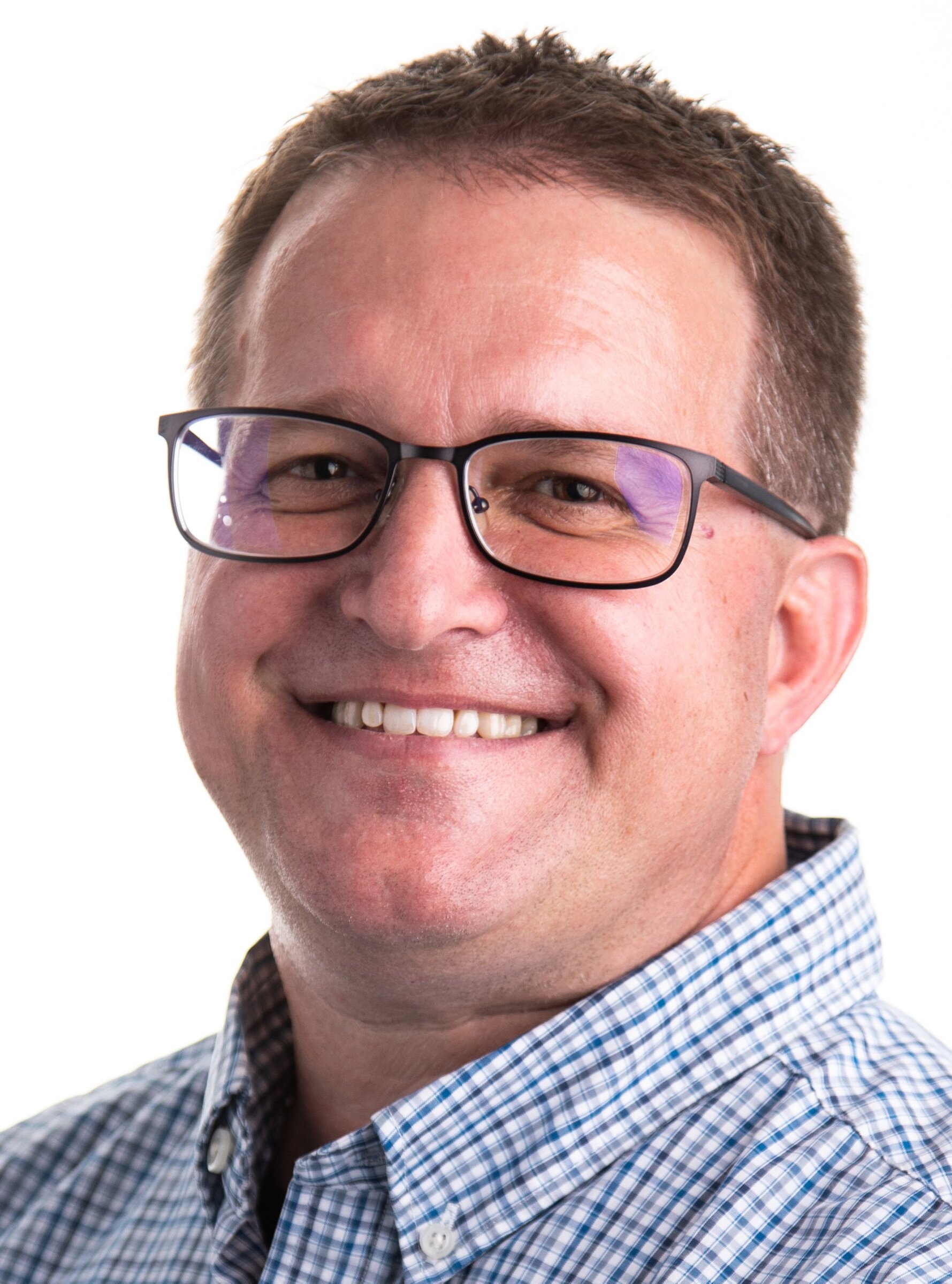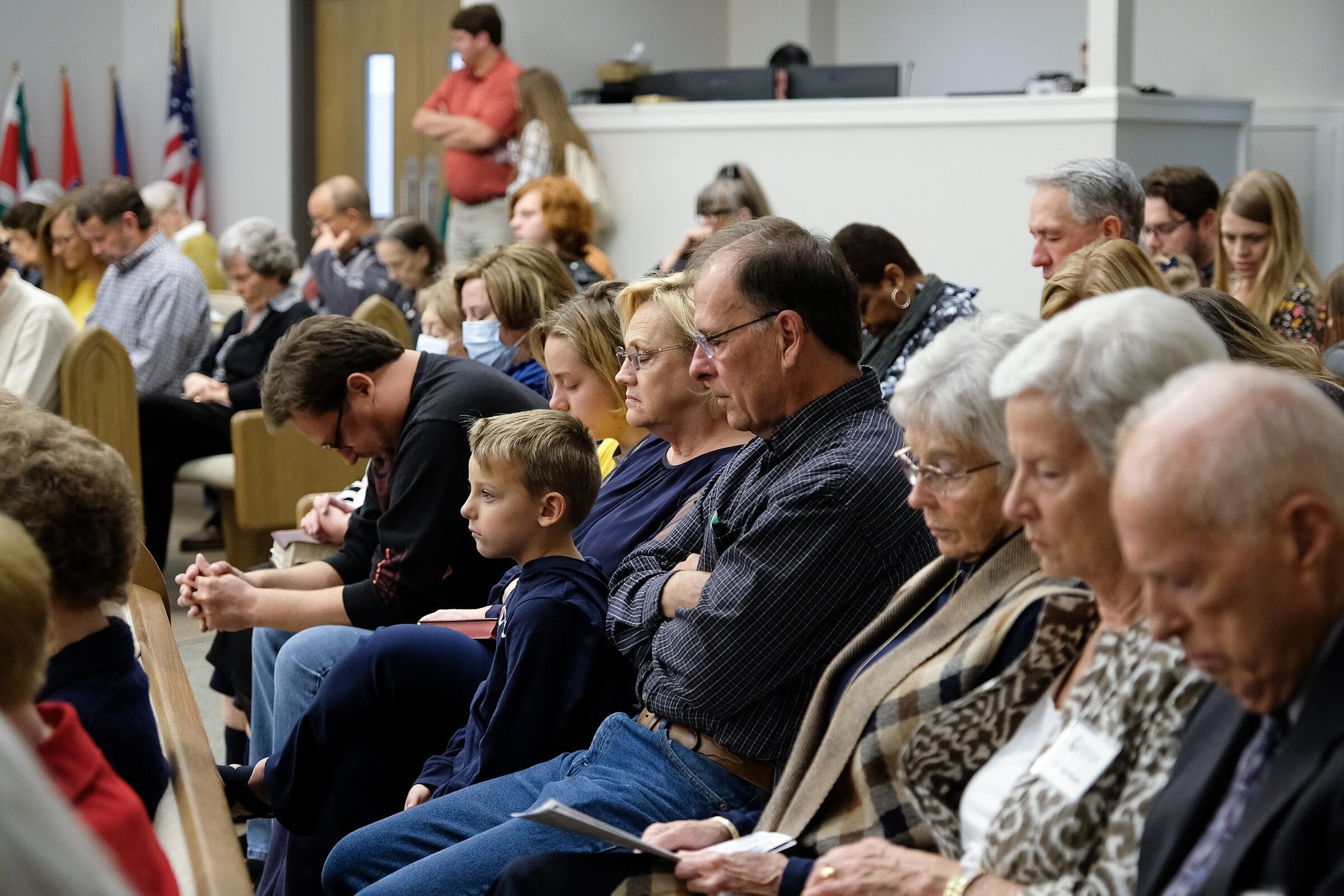Churches of Christ have a supply and demand problem -- thousands of houses of worship and not enough preachers to fill the pulpits.
During Harding University's 100th annual Lectureship in Searcy on Monday, roughly 100 people gathered for a session titled "Minister Shortages in Today's Church."
The shortfall has already had real-life consequences -- not only for the congregations but for the Church of Christ-affiliated university.
The Memphis-based Harding School of Theology announced Aug. 5 that it would be moving its operations back to Searcy after more than six decades in Tennessee, citing what it called "an epidemic shortage of ministers," Christian Chronicle Editor-in-Chief Bobby Ross Jr. said during Monday's panel.
The school of theology also said that it would be slashing its tuition for master's degree and Certificate in Spiritual Leadership candidates, dropping it from $740 to $100 per credit hour.
The September issue of Ross' publication, which provides in-depth, global coverage of the Churches of Christ, included a story on the development. It also included a bumper crop of help-wanted ads, with job openings listed for pulpit or preaching ministers in Colorado, California, Texas, South Dakota, Illinois, West Virginia, Georgia, Maryland and Missouri among others.
Societal changes, covid-related challenges and other factors that have contributed to the shortfall said Jeremie Beller, the Chronicle's opinion editor and the other member of Monday's panel.
The Chronicle has written extensively about the topic, and Beller is grappling with the problem at Oklahoma Christian University, where he serves as dean of the Bible college and director of church relations.
'SUPPLY CHAIN CRISIS'
"Fewer students and fewer people have a heart to enter ministry. Fewer families are encouraging children to do this. Fewer congregations are preparing kids in the youth group to do this," Beller told the audience. "The supply chain crisis has hit ministry."
Covid has left wounds. Attendance plummeted during the pandemic and has never fully recovered.
Social media has also complicated matters, Beller said.
"Preachers are being fact-checked instantaneously in sermons," he said. "The authoritative voice in the pulpit ministry has kind of [been] changed by what's sometimes called 'the democratization of social media.' Everyone has equal access. Everyone knows Greek because they can find it on their phone. That's got some good things; that's got some challenging things, but the voice of authority of the pulpit ministry has been reduced as a result of this."
'FROM A POLITICAL LENS'
Political tensions have also spiked.
"I listened to a minister say the other day, 'I would preach for five more years, if I didn't have to preach through an election,'" Beller said.
"Everything we say from the pulpit is being heard from a political lens and people are leaving the church, not because they understand Jesus and are more committed to Jesus but because they're more connected to their political party," Beller said.
Legitimate financial concerns have also driven some ministers away, he said.
"This isn't about ministers wanting to drive nicer cars and live in bigger houses, [though] there is some of that," he said. "This is about, 'We have to take care of our family.'"
694 IN ARKANSAS
There are 11,905 Churches of Christ in the U.S., including 694 in Arkansas, according to a statistical summary published in 2021 by Nashville, Tenn.,-based 21st Century Christian Inc. Most are in the South.
They claim total adherents of about 1.4 million nationwide, including 79,931 in the Natural State. Each Church of Christ attempts to model itself on the first century churches and each is completely autonomous.
The movement has no denominational headquarters or a doctrinal creed. Its music is non-instrumental, or a cappella.
Many Church of Christ ministers must fund their own retirements and pay for their own health insurance.
There's not a denominational infrastructure to mandate coverage or negotiate more competitive rates, to implement pensions or to ensure that retirees aren't left destitute.
Monday, Beller described how his own health insurance costs had jumped $800 per month one year, leaving him with skyrocketing costs and poorer coverage. When his second child was born, he had to pay the expenses out of pocket because the pregnancy hadn't been covered.
DEMOGRAPHIC CHALLENGES
Many ministers face not only economic and political problems, but also demographic challenges.
Nationwide, Protestant churches have seen sharp drops in membership and attendance since the turn of the 21st century.
Median worship attendance at U.S. churches fell from 137 in 2000 to 65 in 2020, according to Faith Community Today's 2020 report.
Those who remain were older than typical churchgoers in previous decades, the study showed. The average age of ministers was also creeping upward.
Attendance problems acclerated during the pandemic. The post-covid church is smaller than it was prior to March 2020, numerous surveys have shown.
Small congregations, in particular, often struggle to find ministers.
Houston Costolo, an elder from Picayune, Miss., who attended Monday's session, said his congregation, Picayune Church of Christ, has been searching for a minister for four years.
'DIDN'T WANT TO COME'
"Those people that we felt were good candidates, their wives didn't want to come to south Mississippi," he said. "They look at south Mississippi as a mission field, and they're looking, I think, for something else."
The congregation, 50 miles east of New Orleans, has shrunk considerably over the past two decades, he said.
"We were hurt by Hurricane Katrina -- it ran through our town -- and, secondly, we were hurt by covid," he said.
Pre-Katrina, attendance averaged about 125, he said. These days, 75 people show up "on a good day," he added.
The congregation isn't the only one with a vacancy.
"In our area, there are four Churches of Christ looking for ministers," he said. "We're actually in good shape because we have six men who preach, and we rotate, and the congregation's happy with that."
Given the nation's current direction, Levy Church of Christ Preaching Minister Danny Dodd isn't surprised that fewer young people are interested in pursuing ministry.
"I think, overall, our culture is becoming more hostile to Christianity in general," he said. "Ministers and preachers and pastors are not held in the same regard within a community as they once were."
'IN OTHER DIRECTIONS'
For young people selecting vocations, "the pressure to go in other directions is stronger," he said.
Rather than giving up, Dodd's North Little Rock congregation is redoubling its efforts.
"We have a program at Levy that we've done called G.A.P. [Growing, Achieving and Preparing] which has tried to introduce both young men and women to aspects of speaking and ministry and teaching," he said. "You can spark, perhaps, fire in some young person's heart for ministry."
Congregations can also encourage young people called to ministry by providing them with some financial assistance to help cover their college and university costs, he said.
Dodd's home congregation in Mississippi did just that when he was a student, supporting him with dollars as well as prayers and inviting him to preach from time to time.
'WENT A LONG WAY'
"The general encouragement and support that I got from that church went a long way," he said. "It was a blessing for me in all kinds of ways."
Jared Mayes, lead minister at Southside Church of Christ in Rogers, said young people who feel a calling to ministry sometimes encounter resistance.
"I was encouraged to do anything other than preach," he said. "I would tell people I wanted to be a minister and they would say, 'Are you sure you want to do that?' and I said, 'Yeah, I feel a holy calling to [do] this. There's nothing more that I want to do on planet Earth than be a preacher.'"
Mayes pursued his passion. It helped that his parents were supportive of the choices he had made.
These days, he's working to inspire a new generation of preachers.
He helped to found the Kerusso Experience, a weeklong camp organized by Harding's Center for Preaching that teaches high school boys how to prepare and deliver sermons.
Young people benefit when their church family shows interest in their career paths, whether they be secular or ecclesiastical, he said.
"We need [to be] encouraging our young people to pursue not just ministry, but to pursue faithfulness, to pursue God and Christian living," he said.



